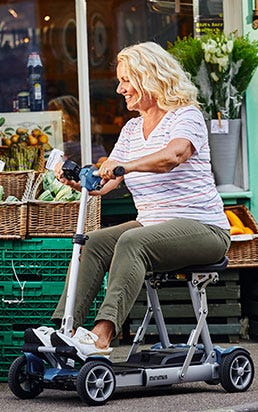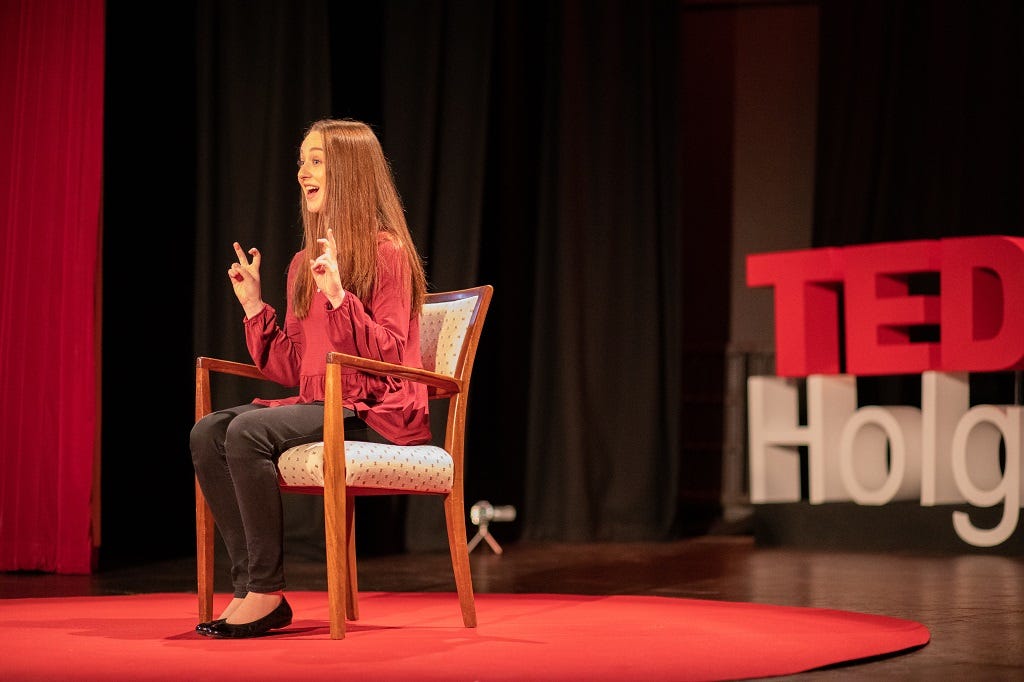It’s no secret that the word ‘influencer’ has become quite a loaded one over the last few years. We’re at a point in time where in most people, that word conjures up quite a set image: conventionally beautiful people living aspirational lives, with hundreds of thousands of people following said lives online.
However, one group that has always set their own trend are disabled influencers. Rather than complying with these fixed ideals, disabled influencers became some of the most reputable for sharing diverse yet authentic realities – creating content that made their audiences feel more validated, better represented, and most importantly, not alone. Although marginalised groups have been systematically overlooked and underpaid by brands in the past, in many other ways, disabled influencers have been untouchable.
That is, however, until a recent BBC documentary ignited a fire in the online world. In a series of now deleted tweets promoting a new documentary, the so-called unbiased platform posed the question: “Are some chronic illness influencers faking it for fame and money?”.
Although the programme was marginally more balanced than the social media posts implied, it highlighted the work of an ‘illness fakers’ forum, people committed to deconstructing chronic illness content shared by some individuals online, and arguing that such content was shared for personal gain – fame, attention, or even money.
However, instead of condemning the people behind these hate-filled forums, the documentary almost seemed to encourage more people to engage in gaslighting and question the lived experiences of people with chronic illnesses.
There’s a whole lot more to be said about that documentary and social media coverage, You can read more commentary about the documentary and the damage it’s inflicted in this Rooted in Rights piece by Charli Clement. However, what I’d like to do here is reframe the way society thinks about disabled influencers… because as somebody who’s been on both sides of the table when it comes to influencer marketing, I truly believe that disabled influencers are paving the way for a more inclusive world.
As a writer, blogger, and speaker, I became an ‘influencer’ of sorts somewhat accidentally. I began connecting with others on social media when my health began to decline, and sharing my own experiences felt like a natural progression. Soon after this, I began to grow an audience – first through social media platforms, and then through my own blog and freelance career. Having an online presence of this nature has opened many doors for me, and one of my personal favourites has been the opportunity to collaborate with brands.
Right from the beginning of this period of my life, I’ve been absolutely fascinated by influencer marketing – all the more so when it comes to disability and chronic illness bloggers. From being a blogger creating content myself, to being a freelancer assisting organisations with influencer marketing and research, I feel I’ve been able to look at these things with a balanced mind… and I can tell you with certainty that working with disabled influencers can be utterly transformative.
Obviously, the main pull of collaborating with any kind of influencer is the marketing element. Reputable influencers have a trusted voice and an engaged audience, and when these things are utilised authentically, it can do incredible things for a brand’s reach and reputation. After all, a growing body of research indicates that influencer campaigns can be significantly more effective than traditional media campaigns – based on case studies, the return on investment for influencer campaigns is thought to be 11x greater than that of traditional media activity.
However I believe their value of disabled influencers in particular extends far beyond the marketing element… both for disability-related brands, and for wider mainstream brands too. When it comes to disability-related brands, seeing a diverse range of disabled influencers normalises the diverse spectrum of disability.
Something I’ve talked about many times is how the past marketing of mobility aids (primarily featuring elderly people) made me feel insecure and invalidated about using such aids myself, but how seeing other people of a similar age and demographic to me using mobility aids on social media radically transformed my perceptions. In the past few years, mobility brands have become particularly receptive to this, and begun to focus using a wider range of representatives, such as influencers, in their marketing and communications – challenging stereotypical images that are still is so often conjured up by the word ‘disability’.
When it comes to mainstream brands, however, working with disabled influencers also makes a powerful statement about their commitment to inclusion. Sure, there have been obvious cases of tokenism, but here’s where disabled influencers come in yet again – using integrity and their lived experiences, they can help these brands evolve and become more inclusive in their wider practice. The more disabled influencers visible in mainstream brands’ marketing, the closer we come to normalising the idea of disabled people being a visible part of society and living full and happy lives.
In saying that, it’s important to make a distinction between influencers and advocates, both of which have distinct differences. However, in the world we live in today, there’s never been more potential for overlap… and every disabled influencer I know is vigilant in using their platform mindfully and as a tool to advocate for social change.
For a select few, it may well be that becoming a disabled or chronically ill influencer could lead to fame or money one day – and if somebody uses their platform ethically and responsibly, then why shouldn’t it open doors for them? However, the argument that disabled people lean into influencer culture because of material gain, or the horrific accusation that people may even fake their health condition or symptoms in pursuit of these things, in my opinion, simply doesn’t hold merit.
Disabled people know better than anybody that having a platform and a voice can be a gamechanger. As somebody who’s lucky enough to have these things and incorporate them into my career, I feel privileged to be able to do my part in normalising living your best life as a young adult with a fluctuating health condition and a majestic power-chair named Janice. Heck, I wouldn’t have this relationship with a leading mobility specialist like CareCo and be writing this post right now if it weren’t for these things.
There is so much more to be said on this topic, but for me, what it all boils down to is this: the work of disabled influencers not only offers invaluable marketing clout, but also paves an important pathway into normalising disability and offering real and authentic representation – both in the media and in wider society. And the more we can do that, the more we can all facilitate meaningful change. Thanks for reading - feel free to join in the conversation over on Instagram, or you can find more of my posts for CareCo on this page!


 Price Match Promise
Price Match Promise
 Next day delivery, 7 days a week
Next day delivery, 7 days a week
 Nationwide Showrooms
Nationwide Showrooms
 Rated Excellent
Rated Excellent







